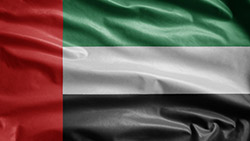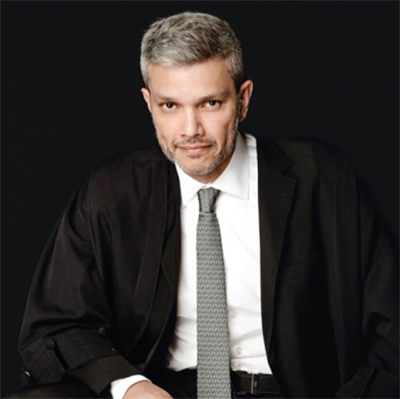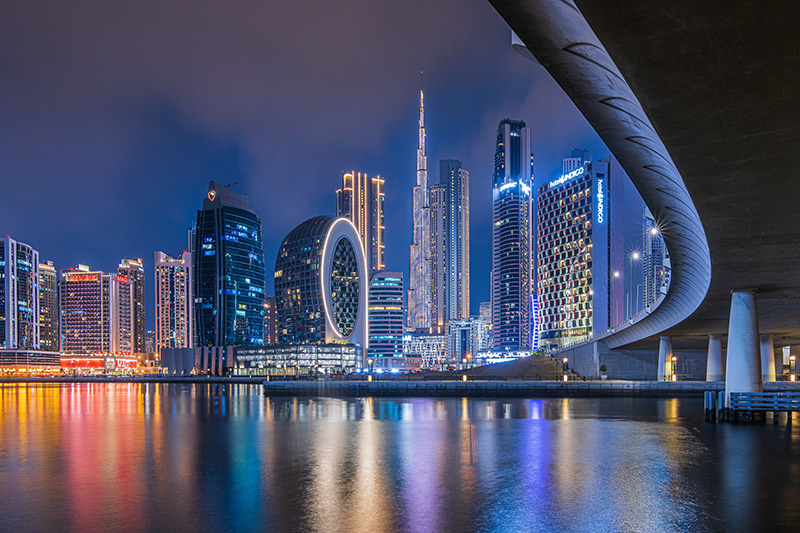Diversity and Inclusion Questionnaire: UAE
Monday 22 April 2024

UAE
Sadique Mohd
Al Aidarous Advocates and Legal Consultants, UAE
sadique@alaidarous.ae

1. What is your current role or title?
I am the Lead Counsel for International Arbitration at Al Aidarous Advocates and Legal Consultants in the United Arab Emirates (UAE). I am also a litigator with full rights of audience in the common law courts of the DIFC (Part 2), Supreme Court of Singapore, Singapore International Commercial Courts and the Astana International Financial Courts.
2. When starting out in your career, did you have any role models?
Early in my career, I drew inspiration from two notable figures: my late father and a senior consultant at my first firm. Their influence on my approach to problem-solving and legal strategies has become ingrained in my professional repertoire. Both served as mentors in the truest sense, imparting invaluable wisdom through their actions − an approach reminiscent of a traditional mentorship model.
My late father, a source of profound guidance, instilled in me a strong work ethic and a commitment to integrity. His principled approach to both personal and professional matters left an indelible mark on my perspective. Additionally, the seasoned consultant at my first firm played a pivotal role in shaping my understanding of the legal intricacies and nuances within the professional domain. Learning from their examples not only facilitated the development of my skills but also provided a solid foundation for ethical and effective decision-making.
Characterised by a blend of traditional values and contemporary expertise, the influence of these two individuals significantly influenced my early professional years. The subtle nuances and intricacies observed during this period laid the groundwork for my subsequent endeavours in the legal field. Through their mentorship, I cultivated a mindset that values both the timeless principles of integrity and the dynamic strategies required in the legal profession.
3. What advice did you receive which helped you progress in your career?
The most impactful advice I received on advancing in my career emphasised the virtues of honesty and hard work. The guidance underscored that, in the long run, these qualities inevitably pave the way for favourable outcomes.
Beyond the professional realm, an additional nugget of wisdom emphasised the importance of kindness. It was framed as a sort of ‘Karma passport’, suggesting that cultivating a compassionate and considerate approach not only benefits others but also contributes positively to one’s own journey.
Implementing this advice in my career has not only yielded positive results but has also fostered a sense of fulfilment in knowing that success is not only measured by personal achievements but also by the positive impact one can have on others.
This holistic perspective, encompassing honesty, hard work and kindness, continues to guide my professional journey, contributing to a meaningful and purposeful career progression.
4. Do you think that diversity is improving in your particular professional area?
The landscape of diversity within the legal professional domain has undergone significant improvement. A burgeoning talent pool now comprises individuals from diverse countries, contributing to the transformation of the legal profession in the UAE into a dynamic melting pot characterised by a blend of various nationalities, ethnicities and, of course, gender representation. This amalgamation of diverse perspectives and backgrounds has undoubtedly enriched the practice of law in our context.
The infusion of varied cultural perspectives and experiences into the legal profession has not only broadened the collective knowledge base but has also fostered an environment of inclusivity. The richness of this diversity has become a distinctive feature, enhancing the professional fabric of our legal community. It goes beyond mere representation; it has become an integral component that contributes to the depth and dynamism of the legal practice in the UAE.
Embracing diversity in this manner not only reflects a commitment to equality but also cultivates a more robust and innovative professional ecosystem. The diverse talent pool serves as a testament to the evolving nature of the legal landscape, demonstrating that a broad spectrum of voices and backgrounds significantly contributes to the overall enrichment and advancement of the legal profession in our region.

Credit: Marco/Adobe Stock
5. What positive steps have you seen organisations take to progress diversity and inclusion?
I have observed several commendable initiatives undertaken by organisations to advance diversity and inclusion within their ranks. One notable stride involves a conscious effort to diversify top and key roles through a more inclusive approach to interviewing and recruitment. By expanding the selection process, organisations actively seek out individuals from various nationalities and genders, in growing recognition of the wealth of talents that a diverse workforce offers.
A key aspect of this positive shift is a commitment to minimise stereotyping and profiling in the evaluation of candidates. Organisations are increasingly realising the importance of assessing individuals beyond the constraints of nationality, gender and ethnicity. This nuanced approach aims to foster a more inclusive and equitable environment by acknowledging and valuing the unique skills, perspectives and experiences that each candidate brings to the table.
In essence, these positive steps go beyond superficial diversity metrics, aiming to create a workplace that genuinely values and celebrates differences. By consciously challenging biases and broadening their perspectives, organisations are not only enriching their talent pools but also cultivating environments where diversity is seen as a catalyst for innovation, creativity and overall organisational success.
6. What aspects do you think are still ripe for improvement in organisations?
There remains a significant opportunity for improvement within organisations, particularly in addressing the persistent issue of disparate remuneration for individuals performing the same roles but hailing from different countries.
The current tendency to assign different salaries based on nationality underscores an inherent challenge that needs rectification. Over-reliance on passports as a determining factor, coupled with outdated distinctions between ‘first-world’ and ‘third-world countries’, perpetuates inequalities that are incongruent with the contemporary social and economic landscape.
A crucial area requiring attention is the need for a mindset shift within organisations. While social and economic realities have evolved, the corresponding change in mindset has lagged behind. Organisations need to proactively challenge and overhaul these antiquated concepts, recognising that talent, expertise and contributions should be valued uniformly, irrespective of nationality or geographic origin.
In essence, organisations must prioritise dismantling these outdated structures, embracing a more equitable compensation model and fostering a mindset that acknowledges the true value of individuals irrespective of their nationality. By doing so, organisations can not only enhance workplace equity but also position themselves as leaders in creating diverse, inclusive and forward-thinking environments.
7. What are the indicators of when a reasonable diversity balance is reached?
Indicators of achieving a balanced diversity are most palpable when the ideas generated and solutions devised within an organisation display a notable level of creativity and multifaceted perspectives. A reasonable diversity balance is reflected in the ability of the workforce to contribute innovative insights that stem from a variety of backgrounds, experiences, and viewpoints.
When creative ideas emerge from collaborative efforts that encompass diverse perspectives, it suggests that the organisation has cultivated an environment where individuals feel empowered to express their unique viewpoints. This inclusivity is not limited to superficial diversity metrics but extends to a genuine integration of varied perspectives, enabling the synthesis of innovative and well-rounded solutions.
Additionally, a well-balanced diversity is characterised by a workplace culture that encourages open dialogue and constructive debate. When teams engage in discussions that incorporate a range of perspectives, it signifies an atmosphere where diversity is not only present but actively embraced. This dynamic interchange of ideas often leads to more comprehensive problem-solving and strategic decision-making processes.
Ultimately, the realisation of a reasonable diversity balance is marked by the organisation’s ability to harness the collective intelligence and creativity of its diverse workforce. It goes beyond mere representation to the tangible impact on the quality and ingenuity of ideas, fostering a culture where diversity is not just a concept but a driving force behind innovation and excellence.
8. What do diversity and inclusion mean to you and why are they important?
To me, diversity and inclusion encapsulate the ability for individuals from varied backgrounds to seamlessly collaborate towards a shared purpose. It goes beyond merely acknowledging differences; it involves embracing them as opportunities for meaningful engagement and knowledge-sharing.
My perspective on this is deeply rooted in my experience coming from a multiracial country, where I’ve witnessed first-hand the significance and value derived from individuals with diverse life experiences working harmoniously together.
In practical terms, diversity has played a pivotal role in shaping my social adaptability and cultural sensitivity. Exposure to people from different walks of life has not only broadened my understanding but has also instilled in me the ability to navigate diverse environments with ease. This has been especially relevant in an era where the world has transformed into a global village, transcending the artificial constraints of national borders.
The interconnectedness facilitated by social media and the accessibility of travel have made diversity and inclusion integral aspects of our interconnected world. The necessity for understanding, appreciating and collaborating with individuals from diverse backgrounds is no longer a choice but a fundamental requirement for navigating the complexities of our globalised society. In essence, diversity and inclusion are not just buzzwords; they are essential principles that foster innovation, enrich perspectives and contribute to the fabric of a more interconnected and harmonious global community.
Sadique Mohd is Lead Counsel for International Arbitration at Al Aidarous Advocates and Legal Consultants in the United Arab Emirates and can be contacted at sadique@alaidarous.ae. |


